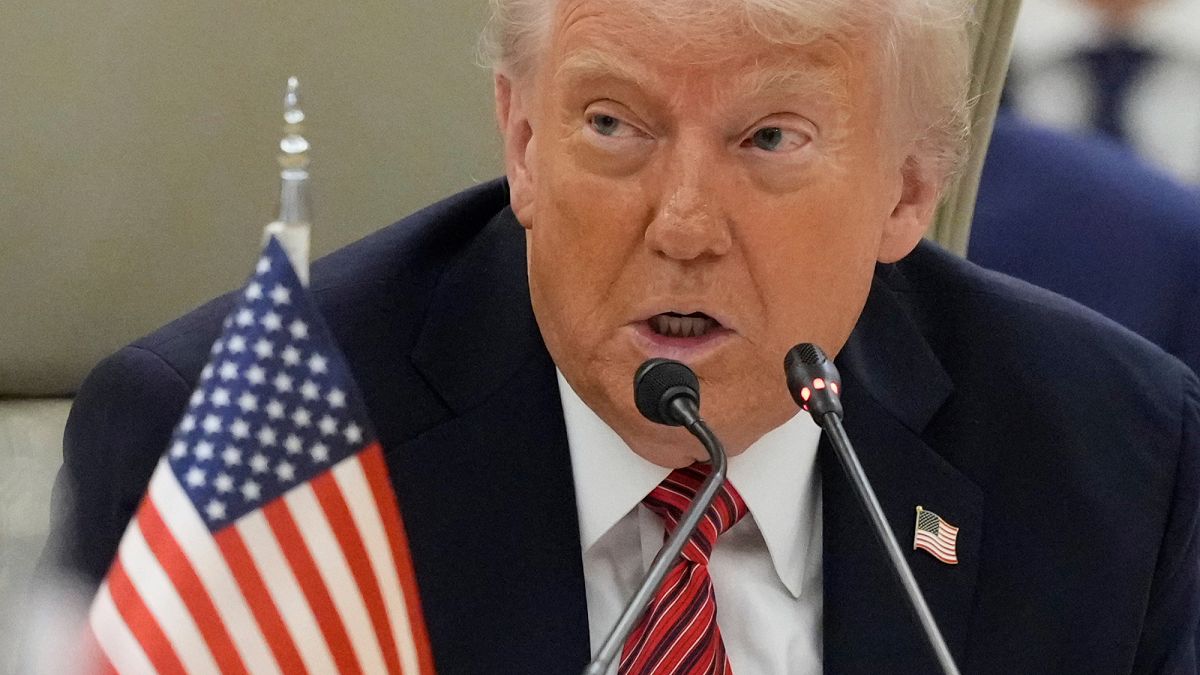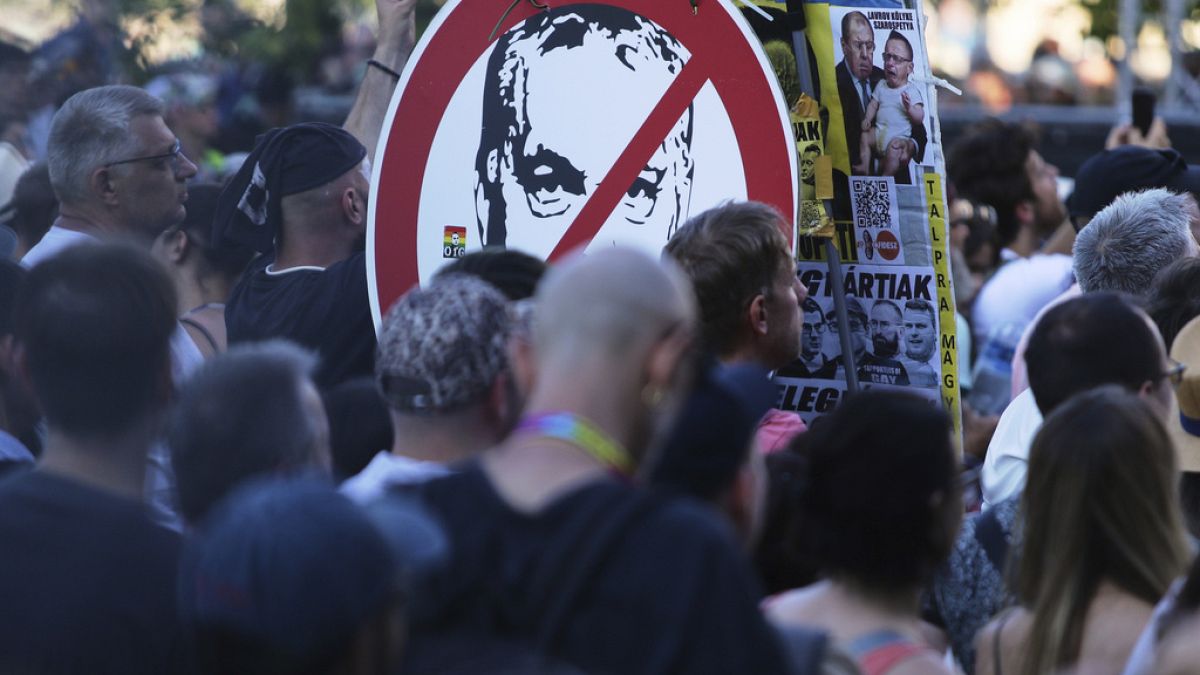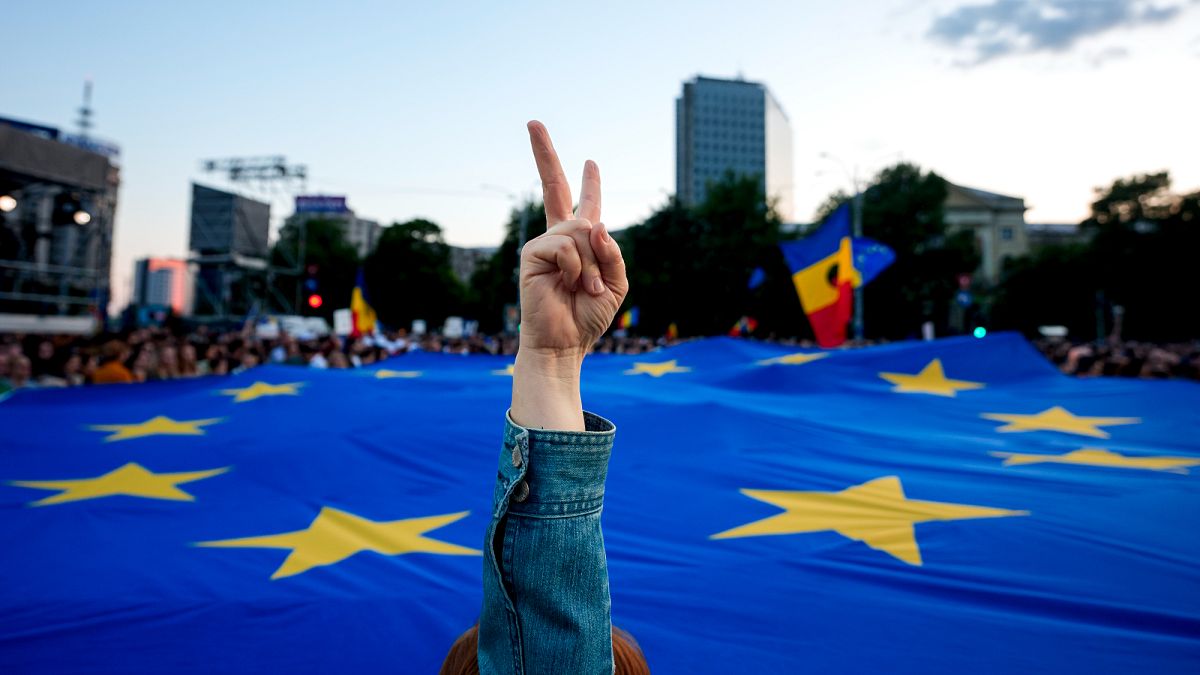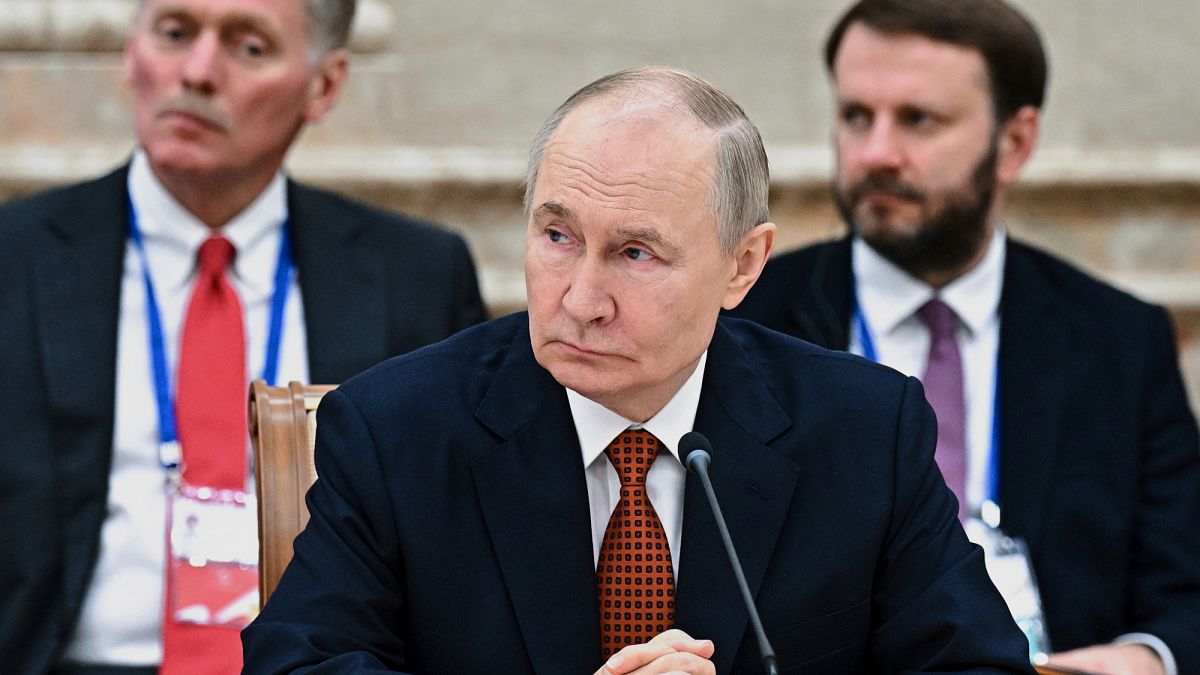EU ministers and sector players have defended the bloc’s audio-visual sector rules and condemned threats by US President Donald Trump to tariff the film production as counterproductive.
Trump has proposeda 100% tariff on American films made outside the country. The aim is to bring production back to Hollywood. But for European countries that have become key filming destinations for major US studios, the move could have wide-reaching consequences.
Speaking to Euronews during Tuesday’s Culture Council in Brussels, France’s Culture Minister Rachida Dati warned that Trump’s proposal could ultimately harm the US industry.
“The American film industry is profitable for the United States. So in the end, it’s their own sector that would be penalised,” she said. “France remains a very attractive destination for cinema. We’re seeing more and more international productions come here. That’s something we welcome.”
Recent titles like The Substance and Emilia Pérez were shot entirely in the Paris region, she added.
Impact on local production
Chris Marcich, president of the Association of European Film Agency Directors (EFAD), called the tariff plan “impractical” but not insignificant.
“My guess is that he [Trump] will be looking for some alternatives, which he will work out in consultation with people from the industry and look to find ways to promote more production in LA,” Marcich told Euronews, adding: “One of them will certainly be additional state aid to production in California.”
Marcich warned that smaller European countries could be hit the hardest: “We really mostly have non-Croatian film shooting in Croatia because of the location and because of cash rebate,” he added, “Whether that programme would be affected or not really depends […] but it could, it could have a very negative impact on our economy.”
That filming creates jobs in the region as productions hire local technical crews – although Americans usually take the creatives jobs, according to Marcich.
EU not backing down on streaming rules
Alongside the tariff threat, Trump has also criticised the EU’s Audiovisual Media Services Directive (AVMSD) – a law that requires streaming platforms like Netflix, Amazon Prime Video or Disney+ to dedicate part of their catalogues to European works and reinvest in local production.
The directive, last reviewed in 2018, is seen in Brussels as a vital tool to protect European cultural and language diversity in a market dominated by US players.
Culture ministers met on Tuesday to come up with a plan that will help shape the EU’s position ahead of a broader revision of the AVMSD, expected at the end of 2026. While the process is still at early stages, geopolitical tensions from both sides of the Atlantic could influence its development.
“Our goal is not retaliation,” audiovisual expert Marcich said. “Our goals, in terms of the review of the directive is to go towards making it even better and stronger as far as European independent production goes, as far film funds go.”
Marcich warned that lobbying from US industry, such as the Motion Picture Association (MPA), is already influencing Trump’s rhetoric. As previously reportedby Euronews, The MPA, which represents US film, television, and streaming industries, wrote to the US administration on 11 March flagging EU legislation imposing quotas requiring video on demand services operating in the EU reserve 30% of their catalogue for European work. They also complained of obligations to invest in European works made by EU member states.
“It’s clear that the Americans have been lobbying to weaken the directive,” he told Euronews.
The MPA has previously stated that it is not seeking modifications to the AVMSD.
Keeping cultural sovereignty front and centre
Several ministers, including Spain’s, host of major TV and movies sets, voiced support for the defence of the bloc’s audiovisual model.
“As you know we have several directives and different requirements in terms of protecting language diversity and in terms of protecting our small independent producers which are a very important part of our cultural sector,” said Spain’s Culture Minister Ernest Urtasun.
“It is very important for them to hear that we will be on their side. We believe that they are a very important segment of our culture. We will defend them, we will defend their jobs, their creativity and we will defend our rules,” he added.
As the Cannes Film Festival begins – a gathering point for political figures and movie stars – the encroachment of culture into global trade disputes will be under discussion on the red carpet.















